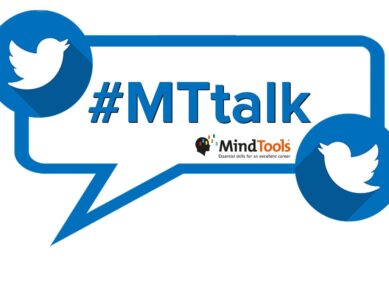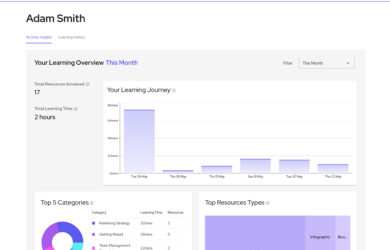Recruitment: Two Sides of the Coin
Recruitment is no “walk in the park” for employers, or for the people who are seeking employment. Each side is wary that the other may not be telling the whole truth. Or, that they can’t or won’t deliver on what they promise.
So, it’s important for both parties to be as honest as possible throughout the recruitment process. For employers, giving the candidate an accurate idea of what the job really involves helps to ensure that you find someone who’s a “good fit.” And, if you’re a candidate, lying on your application or during an interview can ruin your chances – and your reputation.
Let’s look in more detail at why we all need to take this issue so seriously.
Employers, Take Note!
Choosing the right person isn’t just for the benefit of your company; it’s to the advantage of the recruit, too. Selecting the candidate that you think is right for the job, only to find out that he or she is not a good fit, could have a devastating effect on that person’s self-esteem. They may feel that they weren’t “good enough,” and this could have a negative impact on them in subsequent job interviews.
Explaining job changes on a résumé is complicated enough. Having to explain to a prospective employer that you didn’t make it through your probation makes it even harder. And the recruit can’t leave it out, as it will look like an unexplained gap in their career history.
What’s more, if they left another job to work for you, and it doesn’t work out, they may face financial difficulties.
Remember, successful recruiting does take time – from writing a proper job specification, to advertising the position, working through résumés, compiling a shortlist, tailoring your interview questions, conducting interviews, and eventually making a decision. And of course, any activity that takes time also costs your company money.
But, making the wrong choice can cost even more. Consider the training and onboarding process, and the time it takes to get a new employee “up to speed.” Every time you replace someone, it’s like paying for the same thing over again.
So, hire slow, and hire right. If you employ fast, you might have to fire fast, too.
Candidates, Take Note!
When you’re applying for a job, honesty is always the best policy. If you’re caught in a lie, no matter how innocuous it may seem to you, it’s a negative mark against your application. Interviewers will ask themselves, “If he can lie about this, what else will he lie about?”
So, don’t pretend to have done work that you haven’t done. And don’t say that you were a project leader, supervisor or manager if you weren’t. Just because you’ve observed a previous manager doesn’t mean that you know how to manage. You likely weren’t aware of all the manager’s tasks and responsibilities, and it’ll soon become clear that you’re not as experienced as you claimed to be.
And always use genuine references. Don’t assume that they won’t be checked out – they will. If you’re new to the employment market, and you don’t have references, say so. A prospective employer will understand that. But putting your grandmother’s name on your résumé as a “character reference” will just look unprofessional.
And finally, be honest with yourself, too. Research the role and the company carefully to make sure that you really want the job. If you do want it, your research will enable you to ask some impressively well-informed questions at the interview. Think about the practicalities, too – for example, how long will your daily commute take? And does the company culture reflect your own values? Will you be happy and satisfied in the role?
Recruitment Truth and Lies
During our #MTtalk Twitter chat last week, we discussed “Recruitment Truth and Lies.” Here are all of the questions we asked during the chat, and some of the responses.
Q1. In your experience, what makes recruitment difficult for a manager?
@MicheleDD_MT Balancing the need to fill the position quickly and finding the right person.
@NurseDee3 Recruitment difficulties begin with who you hire to recruit first off… You can’t speak to something you have not walked… and then authenticity of that process.
Q2. Do you believe in “gut feel” when recruiting? How well has it served you?
@SanabriaJav I believe your résumé gets you the interview but your interview gets you the job. So most people who are interviewed for a job are on a similar footing. Trying to gauge chemistry is more of a “gut feel” scenario.
@TwisterKW One can’t hide from their gut feeling. It’s there. I hear it. I acknowledge it but then look for proof, through appropriate questions, non-leading questions. Search for facts. Hmm. I do not believe gut is enough, but neither do I ignore it.
Q3. How can you reduce the effects of bias when recruiting?
@NurseDee3 Recruiters often seek out similar attractions… and this can close doors to diverse and exceptional talent. It’s important to have open minds… and be self-aware.
@FranklySandeep With availability of technology bias can be reduced significantly. Trust technology. Trust science. You can also have multiple interviews to eliminate bias. Ensure interviewers are trained and experienced.
Q4. How can you get a true picture of a candidate? What do you need to do?
@ZalkaB Screen that candidate before the actual interview. Check social media (not only LinkedIn), check their online and offline presence. Also during interview, stay away from canned questions and overused psychometric tests (people know how to fake it).
@MaryEllenGrom Depends on the level of hire. Conducting a lunch interview is powerful. Asking unique, off-the-cuff interview questions like “what matters most to you?”
Q5. What do candidates lie about in their résumés? How can you spot this?
@adaolasunmade Work accomplishments, academic qualifications, work experience. Pre-employment checks help.
@BrainBlenderTec From who they know to what they did. I skip all that and focus on what it is they want to be. Drive over skills is my decider.
Q6. What are some of the funniest things you’ve heard in interviews?
Some people simply don’t understand that there’s a time and place for everything.
@_RedBird24 I had someone ask if I was married and then proceed to hit on me as I was walking him out of the door after his interview. He wasn’t hired.
@Yolande_MT I can’t even begin… someone claiming to be clairvoyant and they “saw” a long and happy future with the company. It turned out not to be ours.
Q7. How do you handle an interview when you know early on that the candidate’s not right for the role?
Our participants’ opinions on this question varied greatly:
@TheCraigKaye Not coming to early assumptions. Encourage the candidate to be the best they can be and evaluate the interview with your colleagues objectively.
@FranklySandeep I prefer being polite and candid. I want to respect the candidate’s time.
Q8. What do you need to watch out for when checking references?
@ShereesePubHlth Non-credible sources. I use a service because I hire a lot of clinical talent but even those can be falsified. I usually check the references of the references.
@Midgie_MT Inconsistencies between references, between what the candidate said and what the employer says.
Q9. How do companies misrepresent themselves and how can a candidate check out the facts?
@maat333 The best candidates are not those who only offer their services, but those who also want to know what the company offers… and that could be very useful to the company, to see if there is a problem in the recruitment process, or in the company itself.
@MicheleDD_MT Mispresent the company culture, the level and type of work that you will be doing, oversell the current state of the department’s processes and the capabilities of the team.
Q10. What’s your top recruiting tip/truth?
We really liked the following tips:
@Limha75 We ask an admin assistant to meet the candidate and walk them to the interview room. If the candidate treats the admin assistant well it’s a good sign. You’d be shocked at how many don’t.
@sittingpretty61 The more you create a relaxed atmosphere, the more the candidate will be themselves and you hopefully receive an authentic and engaged applicant.
To read all the tweets, have a look at the Storify summary here.
Coming Up…
When conducting an interview, one of the things that employers look at closely is the interviewee’s body language. The topic for our next #MTtalk chat, on March 2, is, “Body Language: Speaking Without Words.” We’d like to know which aspects of body language you tend to pay more attention to. Click here to cast your vote.
Resources
In the meantime, here are some resources that will help you to learn more about effective recruiting:
10 Recruitment Mistakes
Effective Recruitment
Aptitude Testing
The Big Five Personality Traits Model and Test
Beyond Bias
How to Run Competency Based Interviews
Using LinkedIn Effectively
Avoiding Psychological Bias in Decision Making
Avoiding Unconscious Bias at Work
Club members can also access the full versions of the following articles:
Using Recruitment Tests
Success Profiling
How to Run an Accelerated Recruitment Drive
How to Set up and Run a Remote Interview
Interview Skills
Hiring People: Questions to Ask
Inbox/In-Tray Assessment




